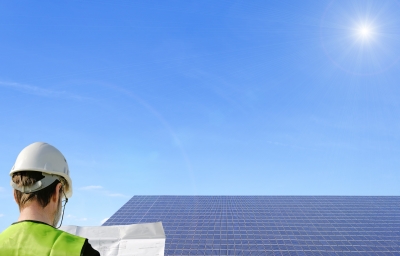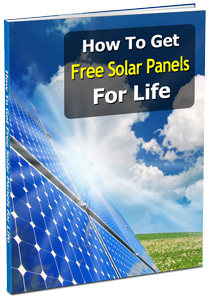Buying a solar power system is a major purchase for most people. Since solar panels can last for up to 25 years, this could be a purchase that you might make only once or twice in your lifetime. For this reason, it’s important to have a basic understanding of the components in the system. It will empower you to ask the right questions about how the solar power system warranty will protect you. With the right answers, you’ll have the confidence that you’re choosing the right solar installation company. More importantly, you won’t be caught by surprise, if anything needs to be repaired or replaced during the life of your solar power system.

Get the warranty terms in writing on your solar power installation contract.
A critical point in understanding the warranty on your solar power system is considering that each component may have separate warranty coverage, while the installer’s work is also treated as a separate warranty item. This is why you’ll want to take the time to understand just what is meant by each “component”.
After all, your system is likely to feature:
- Solar Panels
- Batteries for systems with Back-Up Power or Off-Grid Applications
- Inverters
- Racks, mounts, roof attachments
- Wiring and meters
- Monitoring systems
- Installation – This “component” may also feature parts in addition to labor warranties. This coverage may vary widely by provider.
If you want to learn more about how your solar panel system will work, read our article: Understanding the Parts of a Solar Panel System.
The warranty for the biggest and the most expensive component in the system, the solar panels, usually provides 20-25 years of coverage, based on power output. The amount of energy produced by solar panel systems decreases by a very small amount, each year. So, the manufacturers will provide a warranty that offers a guarantee based on the total power output of the solar panel system. The warranty in the contract will read something like 80% output guaranteed, for up to 20-25 years.
The warranty overage will vary depending on you whether you buy, lease or enter into a PPA (Power Purchase Agreement). Essentially, if you finance your system through a PPA or a lease, you will probably have an energy production guarantee along with maintenance and warranty arrangements for the term of the contract. For those types of arrangements, the solar installation company may be responsible for all or part of the maintenance for the entire term of the agreement. However, make sure that you confirm those details and get it in writing.

Solar Panel Installation Service and the Solar Power System Components have different warranty coverage
If you decide to purchase the system, then you’ll have to look more closely at the actual warranty of each of the components. You may be responsible for their service and maintenance for the entire life of the system. If you’re not comfortable with that arrangement, ask the solar installer if they offer service contracts or an extended warranty. Depending on the price of the service contract or extended warranty, it may or may not be worthwhile to purchase them.
The full warranty for the main components, though, averages at 20-25 years for panels, 5-10 years for batteries, and 5-10 years for inverters. For most parts and labor you will only see a two-year warranty, at best.
Naturally, what this tells you is that whether you opt to purchase outright or enter into a leasing arrangement (which can also allow you to purchase the equipment at the end of the term), you must closely scrutinize the contract and make sure that the warranty terms for each component are in writing.
Things to Ask Your Solar Equipment Provider and Installation Company
Remember that the installation has to be viewed as a unique component and it may have nothing at all to do with the manufacturer of the panels, inverters, or batteries. The well-organized approach to determining your warranty coverage would be to make a list of things to ask.
Start with the bid or quotes you receive. Are warranties part of the prices quoted or are they added on, as an option, at the end of the process?
What components are most likely to fail and what is their replacement cost? This is critical to ask if you are requesting or being offered an extended warranty or service contract. It will help you to determine if you’re comfortable with the cost of the extended warranty or service contract, based on the replacement or repair price of the components.
Are there any options for purchasing an extended warranty or service contract? Whether this is from your installer or the equipment manufacturer, you will want to know if you have access to someone who can troubleshoot or even do replacements when items malfunction or fail to meet expectations.
On the matter of service, find out what is going to occur should your manufacturer, solar panel provider, or installer go out of business during the actual warranty period? Will they notify all of their customers in advance? Will they make some sort of financial compensation or alternative arrangements with another reputable solar panel or component manufacturer?

With the right warranty, you’ll feel great about investing in a solar power system
If you are buying the system, do you assume full responsibility for the components? If you pay someone to install the system, does the installer then assume responsibility for components? What if you move? How does the removal, relocation, and reinstalling of the panels impact the warranty?
A solar energy system is a good investment, whether purchased or leased. The key to enjoying the best financial benefits is to understand what the system might cost you, after the installation has been completed. Will you be financially responsible for too many components? Can you improve the coverage with an extended warranty or service contract? Getting the answers to these questions, are well worth asking. If you know what’s covered, you won’t be surprised by anything, and you’ll end up sleeping better at night, too.
You’ll also like:
Ask these Questions, Before you Buy Solar!
Need Light? – The Solatube Smart LED brings Free Sunshine to You
WOW! The Benefits of installing Solar Power…
Want more interesting articles, reviews and insights like this one?
Sign-up for our weekly updates, below:

Leave a Reply